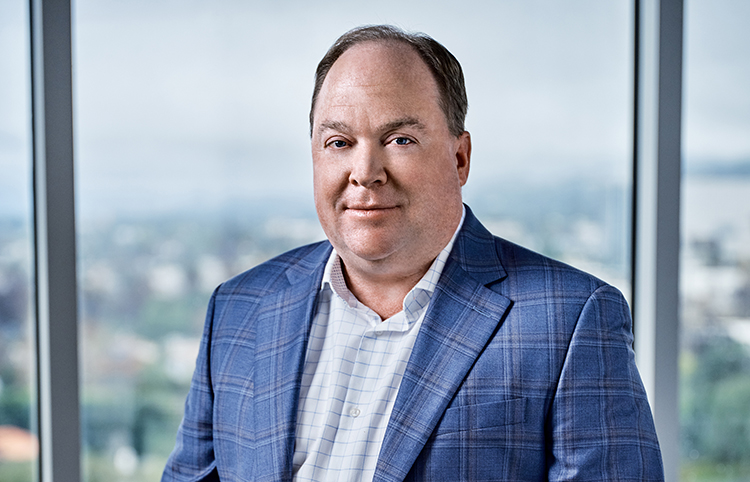Presented By: Genesis Capital
Genesis Capital CEO Clint Arrowsmith On Lending to People, Not Just Projects
By Genesis Capital October 28, 2025 8:00 am
reprints
Commercial Observer sat down with Clint Arrowsmith, CEO of Genesis Capital, to discuss how the company has built a reputation for lending to people, not just projects. In this conversation, Arrowsmith explains what makes Genesis Capital different, how its culture drives client relationships, and why the lender’s disciplined approach positions it to navigate today’s shifting real estate market. He also shares his perspective on where the market is headed, and how Genesis is preparing for what comes next.
Commercial Observer: Genesis Capital has doubled originations in just two years. What’s driving that growth?
Clint Arrowsmith: Growth at that pace doesn’t happen by accident. It’s the product of two things: staying laser-focused on our core clients, experienced developers who operate at scale, and having the right capital and team to execute.
We’ve been successful at taking market share from regional banks because we’ve earned trust with those sponsors. When we issue a term sheet, our clients know we’ll close. That certainty matters more than ever in today’s market, where execution risk can derail an otherwise great project.
You’ve described Genesis Capital as being at an “inflection point.” What do you mean by that?
Every company reaches a stage where doing more of the same isn’t enough to get to the next level. For Genesis, that means evolving beyond our traditional credit box. Historically, we’ve been very bank-like in how we underwrite. That means narrow sponsor profiles, larger deal sizes, and a focus on repeat, top-tier operators. That’s still our DNA.
But we’re also adding new channels for smaller loans, as well as wholesale and correspondent lines that allow us to diversify. The challenge is balancing that growth with the discipline that’s made us the gold standard in our space. Growth has to expand our reach, but never compromise our standards.
What makes Genesis Capital different from other lenders?
We’re truly relationship-driven. A lot of lenders talk about being fast or flexible. For us, speed and certainty are table stakes. What sets us apart is that we lend to people, not just projects.
Our underwriting starts with the sponsor; what’s their track record, their financial strength, their ability to execute. If we believe in the sponsor, we’ll find a way to structure the loan. That philosophy has inspired loyalty. Nearly all of our business is with repeat clients, many of whom have grown with us through different market cycles and multiple ownership structures.
How does that sponsor-first mindset show up in practice?
Take a project that runs into unexpected delays or cost overruns. With us, sponsors aren’t dealing with a faceless third-party fund control. They’re talking to people who have been builders, project managers, site superintendents themselves. Our construction team has been in the trenches, and they know what it takes to keep a project moving.
That empathy is critical. We’re not just financing bricks and sticks, we’re backing the people who make projects happen. When sponsors know we understand their business, it creates trust that endures well beyond a single transaction.
Competitors in the space range from fix-and-flip lenders to large banks. Where does Genesis Capital sit?
We occupy a unique middle ground that we like to call institutional private capital. Against regional banks, we’re successful because we’re faster, more flexible on structure, and more consistent in execution. Banks often re-trade deals late in the process. We don’t.
Against private lenders, we stand out because of our institutional discipline and capital strength. I like to say we’re a hybrid, recovering bankers with an entrepreneurial edge. That combination resonates with professional developers who want the best of both worlds.
You’ve mentioned culture as a critical piece of Genesis Capital. How does that translate for clients?
Clients feel it in the consistency of service. Our people are empowered to make decisions, and we don’t micromanage them. That autonomy means they can move quickly for sponsors without layers of bureaucracy.
Many on our team have been in the sponsor’s shoes. That understanding shows up in how we listen, how we problem-solve, and ultimately how we execute. It’s why clients describe us as more than a lender. They see us as advisers to their business.
Culture also matters internally. We’ve built a collaborative environment where teams are encouraged to think creatively while staying anchored in credit discipline. When employees feel trusted and supported, they deliver better outcomes for clients. That’s a big part of why we continue to attract top talent from both banking and development.
From a lender’s perspective, how do you view the market right now? What are you seeing?
It’s a market that demands both caution and creativity. Rates remain elevated, project costs are still high, and developers are working harder to make deals pencil out. At the same time, the demand for housing hasn’t gone away, which creates real opportunity for those able to navigate today’s complexity.
We’re also seeing a flight to quality. Stronger, well-capitalized sponsors continue to move forward, while less experienced operators are stepping back. The environment is rewarding discipline, experience, and the ability to execute with consistency.
As you look ahead, what are you anticipating and how are you preparing?
We expect continued volatility, whether from interest rates, construction costs, or capital markets generally. Our job is to be a steady partner through that. For us, preparation means diversifying product lines, maintaining discipline in underwriting, and investing in the people and technology that let us scale without losing our edge.
The best sponsors are already planning for the next cycle, and so are we. By staying selective, keeping relationships at the center, and making sure our capital is reliable, we’re positioning ourselves to support clients as they grow, regardless of the environment.



